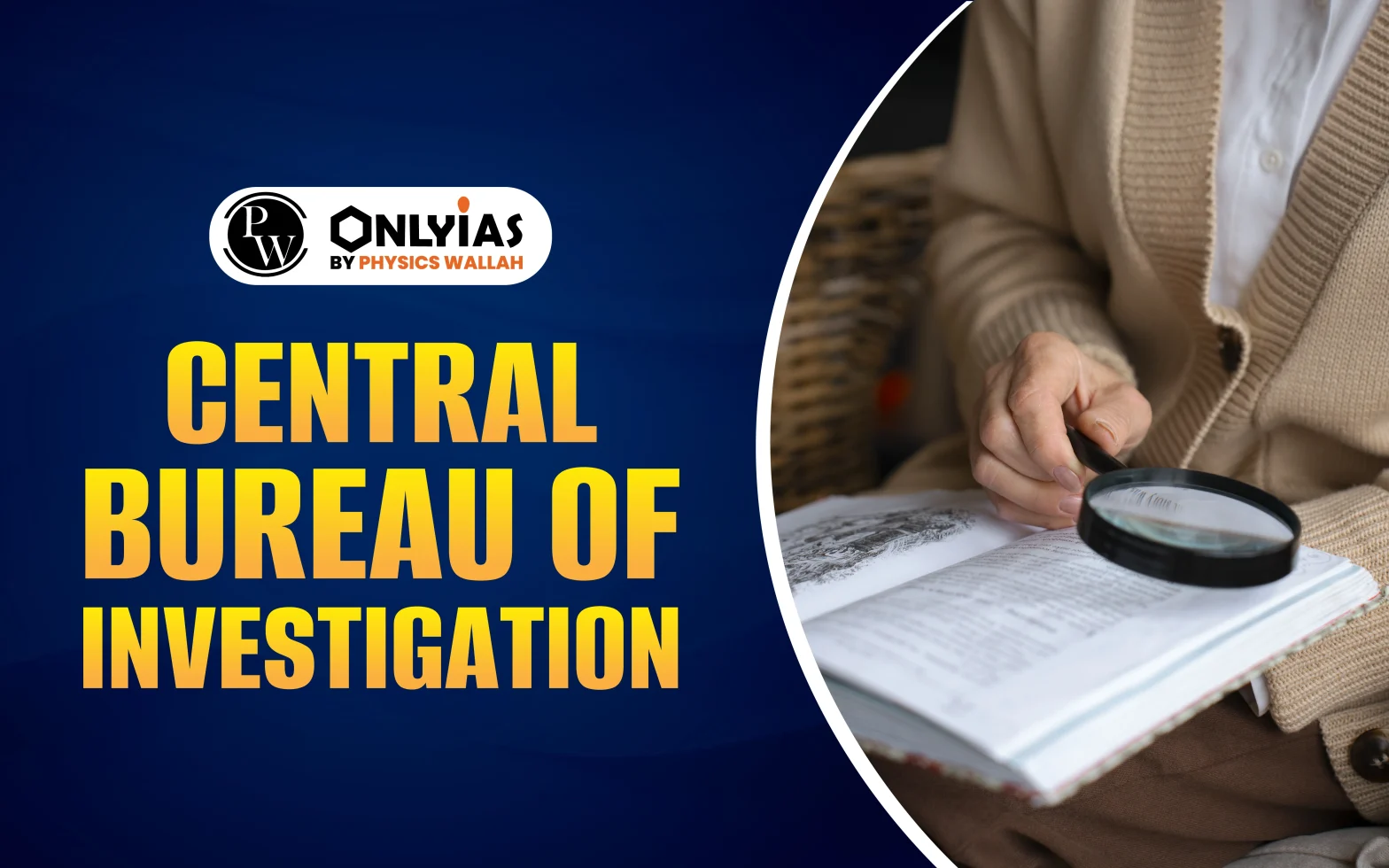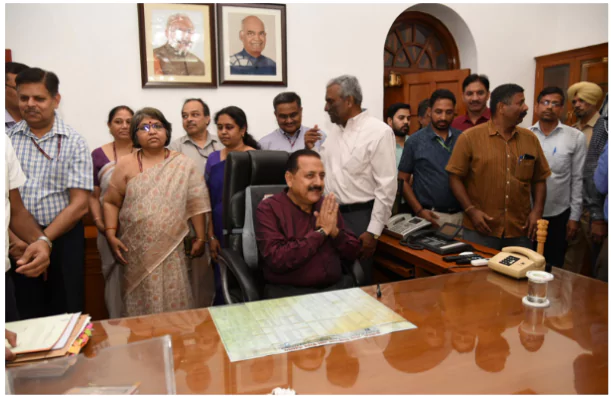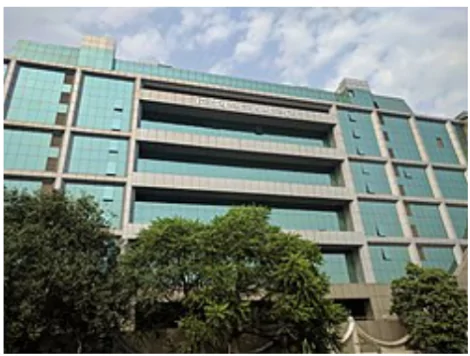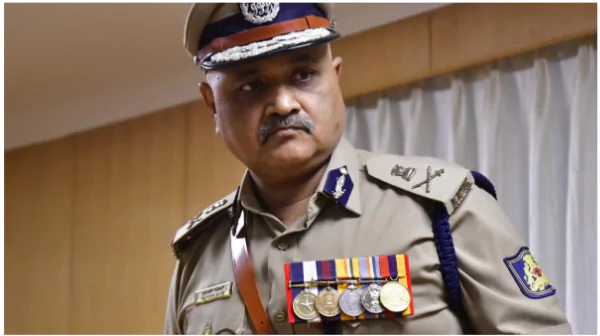
Central Bureau of Investigation (CBI) is India’s premier investigating agency, entrusted with a wide range of criminal investigations involving corruption, economic offences, and special crimes. It plays a key role in maintaining integrity in public administration and upholding the rule of law across the country. Known for its motto “Industry, Impartiality and Integrity.”
Central Bureau of Investigation operates under the Department of Personnel and Training in the Ministry of Personnel, Public Grievances and Pensions, Government of India. With a long and impactful history, the CBI has been instrumental in tackling corruption, economic crimes, and high-profile criminal cases, thereby strengthening the rule of law and promoting good governance.
The Central Bureau of Investigation is the foremost investigating police agency in India, functioning under the Department of Personnel and Training (DoPT), Ministry of Personnel, Public Grievances and Pensions, Government of India. It is also the nodal body for Interpol-related investigations and international law enforcement coordination in India.
| CBI Overview | |
| Aspect | Details |
| Full Form of CBI | Central Bureau of Investigation |
| What is Central Bureau of Investigation? | India’s premier investigative police agency under the Ministry of Personnel |
| CBI Established | 1st April 1963 |
| CBI Established Under Which Act | Delhi Special Police Establishment Act, 1946 |
| CBI Established By Which Committee | Santhanam Committee (1962) |
| CBI Comes Under Which Ministry | Ministry of Personnel, Public Grievances and Pensions |
| CBI Headquarters | CGO Complex, Lodhi Road, New Delhi |
| Founder Director | Shri D.P. Kohli |
| Current CBI Director | Shri Praveen Sood |
| CBI Motto | Industry, Impartiality, and Integrity |
| CBI Mission | Uphold the Constitution through in-depth investigations and prosecution |
| CBI Vision | Combat corruption and crime using scientific, transparent, and modern methods |
| Jurisdiction | Union Territories; States with consent under DSPE Act Sections 5 & 6 |
| Major Divisions | Anti-Corruption, Economic Offences, Special Crimes, Prosecution, Policy & Coordination |
| Legal Framework | Delhi Special Police Establishment Act, 1946; CVC Act, 2003 |
| International Role | National Central Bureau for Interpol India |
The full form of CBI is Central Bureau of Investigation. This name was formally adopted on 1st April 1963 through a Government of India resolution, marking the transformation of the earlier Delhi Special Police Establishment (DSPE) into a full-fledged national investigative body.
Jurisdiction Of The Central Bureau Of Investigation
To understand what is Central Bureau of Investigation, one must revisit its origin. During World War II, in 1941, the Special Police Establishment (SPE) was created to investigate corruption in war-related procurement. Initially operating under the Department of War, the SPE later expanded its jurisdiction to include cases in Indian Railways and other government sectors.
The need for a permanent central investigating body was formally acknowledged post-Independence. The CBI was established on 1st April 1963 through a Government of India Resolution. At that time, the CBI established its roots firmly by absorbing the Delhi Special Police Establishment (DSPE) as one of its divisions.
The Central Bureau of Investigation derives its legal authority from the Delhi Special Police Establishment Act, 1946. According to Section 2 of the Act, its jurisdiction was originally confined to Union Territories. However, under Sections 5 and 6, this jurisdiction can be extended to states, provided state governments give consent.
The establishment of the CBI was deeply influenced by the recommendations of the Santhanam Committee, set up in 1962 to tackle growing corruption in public life. Based on the committee’s recommendations, the CBI was created to serve as an independent body for in-depth investigations.
The Central Bureau of Investigation comes under the Ministry of Personnel, Public Grievances and Pensions, Government of India. Operationally, it functions under the Department of Personnel and Training (DoPT).

Source: PIB
The CBI headquarters is located at CGO Complex, Lodhi Road, New Delhi. Over time, the headquarters moved from various locations, including East Block in R.K. Puram and the Indian Express Building, finally settling at the CGO Complex. This modern facility reflects the agency’s evolution and its central role in national law enforcement.

Source: Wikipedia
The CBI Director is the administrative head of the organisation and holds the position of Inspector General of Police, Delhi Special Police Establishment. The Director is appointed for a fixed tenure of two years and is selected by a high-level committee constituted under the CVC Act, 2003, which ensures transparency and independence in selection.
The founding Director of CBI was Shri D.P. Kohli, who laid the foundation for the agency’s ethical and professional standards, and the current director is Praveen Sood.

Source: The Hindu
From its early days as the SPE, the Central Bureau of Investigation evolved into a multi-disciplinary agency. Initially tasked with probing bribery and corruption, it expanded over decades to handle economic crimes, organised crime, special crimes, bank and securities frauds, terrorism-related offences, and even sensitive cases on referral by courts or state governments.
The Economic Offences Wing, Anti-Corruption Division, and Special Crimes Division were set up to manage increasing complexities in white-collar and conventional crimes. The Directorate of Prosecution was added in 2001 for handling legal proceedings effectively.
The CBI’s role and functions have expanded over the years to include:
These divisions reflect the dynamic CBI role and functions, allowing it to address conventional crimes, financial frauds, cyber crimes, and organised criminal syndicates with equal competence.
While the Central Bureau of Investigation gets its investigative powers from the DSPE Act, its superintendence lies with the Central Government. However, when it comes to cases under the Prevention of Corruption Act, the Central Vigilance Commission oversees the agency. This dual mechanism ensures both autonomy and accountability.
Over time, the Central Bureau of Investigation has taken on numerous high-profile and sensitive cases, including:
CBI’s jurisdiction has been expanded repeatedly through court directions, especially from the Supreme Court of India, which often entrusts the agency with sensitive criminal cases.
The Central Bureau of Investigation, since its inception in 1963, has grown into the most trusted and capable federal investigative agency in India. With its strong legal backing from the Delhi Special Police Establishment Act, rigorous training, and strategic leadership, it continues to serve as a pillar of integrity and justice in the Indian democratic framework.
Its ability to adapt to evolving crimes and uphold constitutional values reinforces the critical role it plays in safeguarding public interest. The CBI director, supported by highly trained personnel and specialised divisions, ensures the agency remains vigilant and efficient in its fight against corruption and crime, both nationally and internationally.
Ready to boost your UPSC 2025 preparation? Join PW’s UPSC online courses today!

<div class="new-fform">
</div>